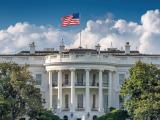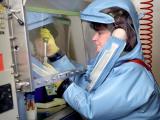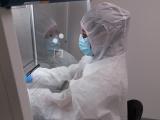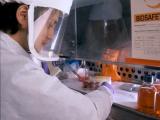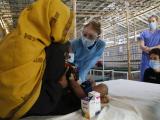Oct 13, 2010 (CIDRAP News) – Federal health officials today released guidance on how companies that supply synthetic DNA should screen orders to guard against attempts by groups or individuals to use the materials to create dangerous organisms.
The guidance, titled "Screening Framework Guidance for Providers of Synthetic Double-Stranded DNA," aims to limit the risk that synthetic DNA will be deliberately misused without unduly hampering beneficial uses, the US Department of Health and Human Services (HHS) said in announcing it.
The document calls on suppliers to screen both customers and the DNA sequences they order, and to investigate further if those steps raise any concerns.
Synthetic biology "is poised to become the next great transforming technology for the life sciences and beyond," the guidance states. "Synthetic biology is not constrained by the requirement of using existing genetic material and thus has great potential to be used to generate organisms, both currently existing and novel, including pathogens that could threaten public health, agriculture, plants, animals, the environment, or materiel."
In a press release, HHS officials said synthetic DNA is becoming a key material used in the life sciences and biotechnology for various purposes, including fighting disease.
"While there are significant potential benefits, synthetic DNA could potentially be used to recreate dangerous organisms that are covered under existing regulations," HHS stated. "As such, development of technologies utilizing synthetic DNA must be encouraged in a safe and secure manner."
The guidance calls on providers to screen customers to establish the legitimacy of groups, confirm the identity of individuals, spot any "red flags," and conform with US trade restrictions and export control regulations.
Providers are also advised to screen the sequences ordered to determine if they are "sequences of concern." If they are, providers are encouraged to take follow-up steps to determine whether filling the order would raise concern.
If follow-up screening doesn't resolve concerns about a customer or an order, providers should contact the federal government for information and assistance, the guidance says.
The guidance was developed by an interagency working group, which consulted with representatives of industry, academia, and federal agencies involved in synthetic DNA policy, and also gathered public input, HHS said. The working group will review the guidance regularly and revise it as needed.
"This guidance is an important step in ensuring that synthetic DNA is used to promote, not threaten, public health," said Dr. Nicole Lurie, HHS assistant secretary for preparedness and response, in the HHS release. "The guidance also recognizes the steps industry has taken proactively to address potential biosecurity risks and seeks to minimize negative impacts on research and business."
See also:
HHS guidance document page
http://www.phe.gov/Preparedness/legal/guidance/syndna/Pages/default.aspx
Full text of guidance (28 pages)
http://www.phe.gov/Preparedness/legal/guidance/syndna/Documents/syndna-guidance.pdf
